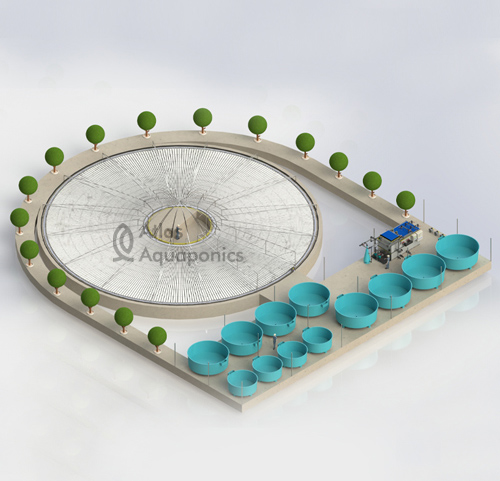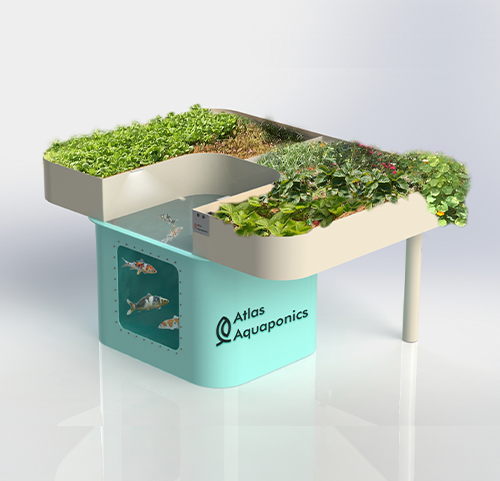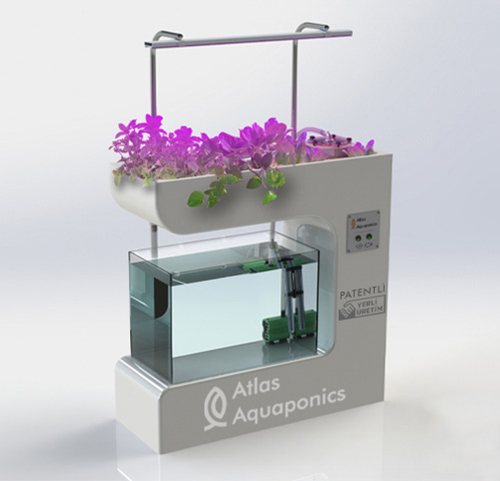Best Winter Crops for Aquaponic Systems
Grow Smart, Even in the Coldest Months
Aquaponics isn’t just a summer sport. With proper planning, you can keep your system producing fresh, nutritious crops year-round — including through winter. But not every plant is suited for cold temperatures. To maintain high yields and avoid stress on both your plants and fish, you need to select cold-weather crops that thrive in cooler environments with limited daylight.
In this guide, we’ll cover the top winter aquaponic crops, cold-season herbs, expert tips for managing your system in low temperatures, and how to pair your crops with cold-tolerant fish species for optimal performance.

Why Focus on Cold-Weather Plants?
Unlike traditional soil farming, aquaponics gives growers control over many environmental variables. Still, as outdoor temperatures drop, even insulated or indoor systems will experience seasonal shifts. Cold-resistant crops have several advantages:
- Thrive in cooler water and air temperatures (often 45–70°F / 7–21°C)
- Are less likely to bolt under short daylight hours
- Require lower nutrient loads (ideal for slower fish metabolism in winter)
- Minimize stress on your fish and system balance
By understanding what grows well in winter, you make the most of your system — even in December and January.
Top Cold-Weather Crops for Aquaponic Systems
Let’s take a closer look at the best plants to grow in winter, their ideal growing conditions, and why they shine in aquaponic setups.
1. Kale – The Resilient Supergreen
- Growth Time: 30–40 days
- Ideal Temp: 45–75°F (7–24°C)
- Why It Works: Extremely hardy, nutrient-dense, and fast-growing. Kale also has strong root systems that adapt well to both grow beds and floating raft systems.
2. Spinach – Cold-Loving & Fast-Growing
- Growth Time: 25–35 days
- Ideal Temp: 40–75°F (4–24°C)
- Best Setup: Raft or NFT (nutrient film technique)
- Extra Tip: Spinach can handle lower light, making it great for dim winter days or greenhouses.
3. Lettuce Varieties (Butterhead, Romaine, Leaf)
- Growth Time: 30–45 days
- Ideal Temp: 45–70°F (7–21°C)
- Why It Works: Easy to grow, light root load on your system, and great turnover for quick harvests.
4. Swiss Chard – Colorful, Nutritious & Versatile
- Growth Time: 35–45 days
- Temp Range: 50–80°F (10–27°C)
- Pro Tip: Unlike other greens, chard continues to grow after harvest, providing multiple cuttings.
5. Arugula – The Quick, Spicy Grower
- Growth Time: 20–30 days
- Temp Range: 45–65°F (7–18°C)
- Best Use: Great for winter salads; quick crop rotation possible every month.
6. Mustard Greens – High Flavor, Cold-Ready
- Growth Time: 30–40 days
- Temp Range: 45–70°F (7–21°C)
- Note: Their strong taste isn’t for everyone, but their vitamin and mineral content is unmatched.
Bonus: Cold-Resistant Herbs for Winter Aquaponics
Don’t overlook herbs in winter — some perform exceptionally well in cool weather:
Herb | Temp Range | Benefits |
Mint | 45–75°F | Spreads fast, highly aromatic |
Parsley | 45–70°F | Cold-hardy and long-lasting |
Cilantro | 50–70°F | Grows slower but sweeter in cold |
Grow these in vertical towers or floating rafts for better space efficiency during winter.
Pro Tips for Growing in Cold Weather
Managing your aquaponic system through winter involves more than just plant selection. Here’s how to keep your system strong:
- Insulate tanks & grow beds – Use foam board, thermal blankets, or reflective material.
- Use energy-efficient heaters – Especially in very cold climates.
- Supplement lighting – LED grow lights help offset shorter daylight hours.
- Aerate more frequently – Colder water holds more oxygen, but fish need it consistently.
- Adjust fish feeding – Fish eat less in winter. Overfeeding leads to ammonia spikes.
- Protect roots – In raft systems, insulate underneath the tanks to avoid root chilling.
Ideal Fish Pairings for Winter Crops
Fish play a vital role in nutrient cycling. In colder months, it’s wise to choose fish that tolerate lower water temperatures:
Fish | Temp Tolerance | Notes |
Trout | 50–65°F | Cold-water champion, fast-growing |
Perch | 50–70°F | Hardy, adaptable |
Catfish | 55–75°F | Slows down in cold, but manageable |
Carp | 50–80°F | Very resilient |
These species keep nutrient levels flowing even when growth slows down — perfect partners for winter crops.
Crop Rotation Strategy for Seasonal Planting
To keep your system healthy and productive, practice seasonal crop rotation:
- Fall to Winter: Lettuce, spinach, kale, arugula, mint
- Winter to Early Spring: Swiss chard, mustard greens, parsley
- Late Spring Prep: Transition to basil, tomatoes, peppers as temps rise
This cycle keeps your nutrient demands balanced and disease pressure low.
Troubleshooting Winter Challenges
Problem | Cause | Solution |
Yellowing leaves | Low nutrients or light | Boost grow light hours, check fish feed |
Root rot | Cold, stagnant water | Increase aeration, reduce water temps |
Slow growth | Cold temps or low sunlight | Use heaters, add reflective surfaces |
Fish lethargy | Water too cold or overfeeding | Reduce feed, monitor ammonia levels |
Final Thoughts
Winter doesn’t have to mean the end of your growing season. By selecting the right winter aquaponic crops, implementing seasonal planting rotations, and making strategic system adjustments, your aquaponic setup can thrive in even the chilliest conditions.
At Atlas Aquaponics, we specialize in helping growers achieve year-round productivity, no matter the weather. Whether you’re new to aquaponics or scaling your system, we’re here to help you grow smarter, not harder — in every season.



